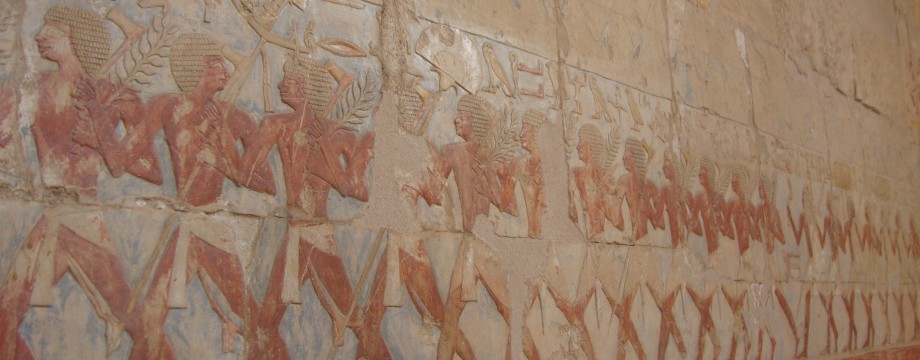As vigilant readers will note, I have of late become interested in the presentation of Egyptology on Television, the variety of program produced and the aim of such public interaction. Currently every fact junkies favourite station- BBC 4- is indulging us in an Archaeology season, the flagship program of which is “Archaeology: A Secret History”, hosted by Dr Richard Miles (http://sydney.edu.au/arts/classics_ancient_history/staff/profiles/richard_miles.shtml). At the time of writing the second episode of three has just been shown.
The second program “The Search for Civilisation” details the developments in the study of the ancient and creation of the science of archaeology in the 18th and 19th centuries. The program covered a lot of ground, from the rediscovery of Pompeii and Herculaneum, via Egypt, Napoleon, Giovanni Belzoni, into a number of academic institutions, then on to Palanque and back to Schliemann and ending up back in the UK with the work of Pitt-Rivers. Dr Miles specializes in Roman north Africa, given the breadth of the programs, it must be said that he speaks eloquently and in a balanced manner about all the topics covered. (He did his BA in Liverpool- perhaps that is the reason for such quality, but then i am biased).
I may seem extremely positive so far, though I must say in the balance this show was an excellent example of what can be done with television archaeology! So if indeed I am so positive, what were the decisive elements to this ?
1) The presenter was enthusiastic though not hyperactive nor melodramatic. Instead, the enthusiasm was well placed and genuine.
2) There were shades of grey (not the E.L. James type). By this I mean, the rhetoric of the program did not just laud our archaeological predecessors but appraised them in terms of motivation. For example: “people no longer wanted to own, but now understand the past”. Though some characters such as Heinrich Schliemann may have drawn more criticism for his occasionally callous methodology.
3) Real artefacts and real engagement. Objects bring archaeology to life, in this case this includes objects such as Description de l’Egypte early photographs and the records of Pitt-Rivers among other things. It is not often we see television documentaries looking at less monumental objects.
4) Facts and stories. Documentary programs require both of these elements, too often we see an imbalance in this. However, in this episode, whilst there were vivid stories about Catherwood and Stephens and Belzoni etc to show the history of the subject, we were not withheld f`acts and academic rigour.
5) The overall narrative of the episode was clear. It did not dumb elements down, rather it was expressive and assured. (With Egyptology on the rise “Greece and Rome seemed such old hat” being a highlight of plain speaking)
I look forward to the next installment, discussing the application of science of archaeology in the 20th century. I feel that this series is showing how such documentaries may be done. Following on from my thoughts the other week, I was pleased to see such a program and even more so when I read a piece by Dr Miles where he lucidly sums up my thoughts, if you will excuse me too large of a quote than usual;
“My own view is that this could be a very good thing not just for Australia’s media but also its universities. Public intellectuals can greatly enrich the national conversation. University academics can bring clarity, independent thinking and most importantly, expertise to important debates.
For academics, who have often traditionally looked upon the media with grave suspicion as the agent of heinous “dumbing down”, the chance to communicate their ideas to a wider audience, particularly one that pays for their research and salaries, is a wonderful opportunity.
Working with the media can be an extremely rewarding experience for university academics. For those in the humanities who research on their own, it can offer a welcome opportunity to work in collaboration with others who can often bring a broader perspective.
The media demands clarity of thought and economy of expression – two skills which academics are not always known for. Rather than the oft-repeated charge of dumbing down, the Holy Grail for editors is complex ideas being explained in the simplest way possible. That is surely an aspiration that we can all agree upon.” (http://sydney.edu.au/news/arts/2228.html?newsstoryid=10542)
DP
